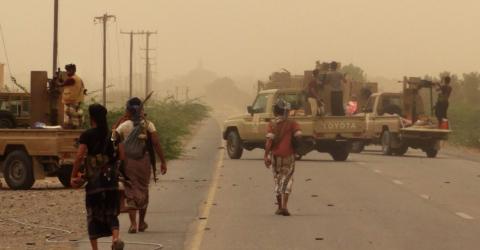The Red Cross opens a coronavirus treatment centre in Yemen


The International Committee of the Red Cross (ICRC), the Finnish Red Cross and the Norwegian Red Cross opened a coronavirus treatment centre, providing free care to all, in the Yemeni city of Aden on 20 September in collaboration with the Yemen Red Crescent Society. The new centre helps prepare for a second wave of the virus in the country. Yemen is suffering from the severest humanitarian crisis in the world right now, and less than half of the country’s healthcare services are operating.
‘Many hospitals in Aden closed their doors when the first wave of coronavirus hit some months ago. People must have treatment options available in case they become ill. The new treatment centre and effective preventive work conducted by the Red Cross amongst communities are vital for controlling the spread of the illness,’ says Tiina Saarikoski, Head of International Disaster Management in the Finnish Red Cross.
The treatment centre has 60 beds, first aid and X-ray rooms, a monitoring unit, treatment wards, a triage area and sample taking facilities. Currently, the aid operation includes 25 international Red Cross aid workers from Finland, Norway and Switzerland and over 100 local workers. The treatment centre’s technical and medical equipment has been donated by the Finnish and Norwegian Red Crosses.
The Finnish Red Cross provides support to the centre from its disaster relief fund, for which more funds will be collected on Hunger Day on 24–26 September. Furthermore, valuable support for the establishment of the treatment centre has also been provided by the Ministry for Foreign Affairs of Finland.
The first wave of coronavirus hit Yemen hard. By 17 September, the official number of coronavirus infections in the country was 2,023 (WHO), but the actual number is believed to be far higher. Nearly 29 per cent of the detected cases have led to death, which is many times the current global average. A large number of Yemenis know too little about the coronavirus and how to protect themselves from it, and a variety of beliefs are associated with the illness.
‘People often seek treatment too late.The healthcare system has been eroded by the extended conflict, which makes it more difficult to detect, control and monitor infections, subsequently increasing the risk of infection. It is extremely difficult for the country’s public healthcare to respond to even the most basic needs. Therefore, the most vulnerable people may be left without treatment, and the coronavirus pandemic has added to the existing challenges,’ says Tiina Saarikoski, Head of International Disaster Management.
The armed conflict in Yemen has continued since 2015. In addition to the problems in healthcare, the recurring floods, blackouts and price hikes caused by inflation have made life in Yemen extremely difficult. Cholera, dengue and other infectious diseases are also common. Many Yemenis are unable to afford food, medicine or other essentials.

Aden — Yemen Airways has announced new updates to its ticket cancellation (VOID) policy, introducing financial penalties on travel agents in…

Geneva – The United States announced that Yemen will not be among the countries benefiting from a new $2 billion funding pledge for United Na…

Paris — The French humanitarian organization Acted announced that it has delivered cash assistance to nearly 89,000 people affected by displa…